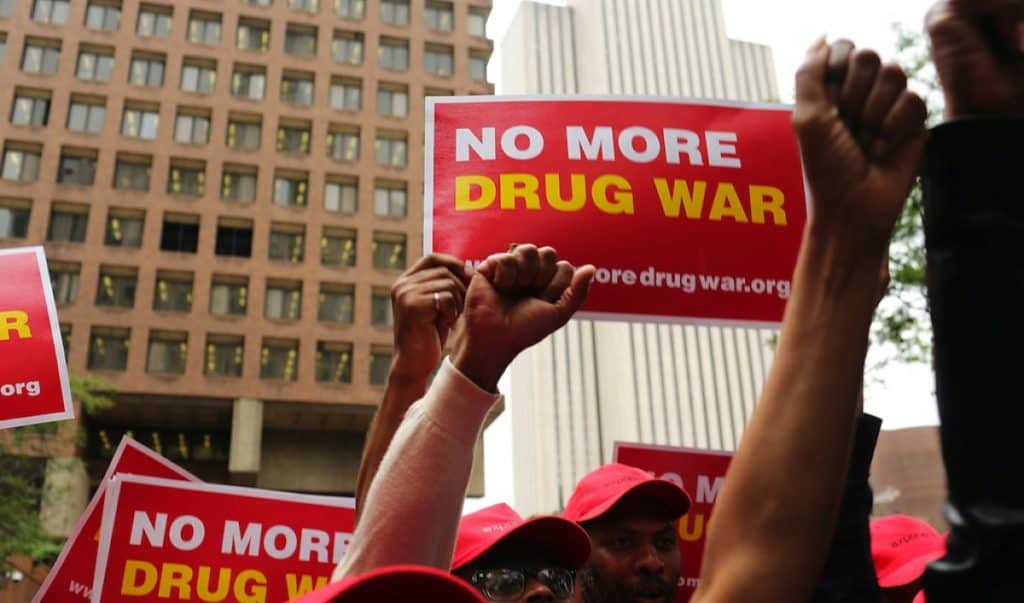
By Dan Murphy
Last week, Gov. Andrew Cuomo signed a law that decriminalizes the possession of up to 2 ounces of marijuana and expunges the records of those convicted of marijuana offenses. While the new law, which will take effect at the end of August, decriminalizes pot, it does not address nor legalize the sale of marijuana; possession will still result in a fine and not a criminal conviction.
“Communities of color have been disproportionately impacted by laws governing marijuana for far too long, and today we are ending this injustice once and for all,” said Cuomo. “By providing individuals who have suffered the consequences of an unfair marijuana conviction with a path to have their records expunged and by reducing draconian penalties, we are taking a critical step forward in addressing a broken and discriminatory criminal justice process.”
The goal of this legislation is to make marijuana enforcement fairer and more equitable by reducing the penalty for unlawful possession of marijuana to a violation punishable by a fine and removing criminal penalties for possession of any amount of marijuana less than 2ounces, and creating a process for individuals with certain marijuana convictions to have their records expunged both retroactively and for future convictions.
“Decriminalizing marijuana is an essential part of reforming our state’s broken justice system,” said Senate Majority Leader Andrea Stewart-Cousins. “For too long, communities of color have been disproportionately targeted and negatively impacted. The Senate Democratic majority will continue our efforts for full legalization and regulation of marijuana, and today’s decriminalization is a good first step.”
Legalization of marijuana for recreational use failed at the end of the legislative session in Albany in June, falling a few votes short in the State Senate. Westchester State Sens. Shelley Mayer and Peter Harckham were against legalizing marijuana in New York this year, and in the end no vote was taken.
So decriminalization of pot in New York was the compromise, or fall back option, for the governor and state legislators. But supporters of legalizing pot pointed out the hypocrisy of still not being able to buy pot in New York for recreational use.
“You can have some (marijuana) but you can’t buy it, can’t sell it, can’t trade or grow it and you’ll still be arrested if you do any of those.” said Gary Colmey, a member of Legalize It! CNY. “But you can ‘possess’ some… And where, then, does it come from? The sky?”
Sen. Jamaal Bailey, who represents Mt. Vernon and the Bronx in the 36th district added: “Marijuana possession gives those convicted a criminal record that will follow them throughout their lives, potentially limiting their access to education, affecting their ability to obtain employment leading to a potential inability to provide for their families. The creation of a mechanism for expungement, both retroactively and forward-looking, is a step in the right direction in finally ending the heavy-handed war on drugs that has decimated communities of color.”
New York now becomes the 27th state to either legalize or decriminalize marijuana.
But decriminalized marijuana is not legal marijuana. Ten states and the District of Columbia have legalized adult recreational marijuana. In New York, you can still be stopped and charged with possession of pot, but instead of getting arrested, you will be given a ticket that will not go on your criminal record.
Under New York’s new pot law, possession of 2 ounces (57 grams) or less is now a violation, subject to a ticket and fine. The fine is $50 for less than 1 ounce, and $100 for less than 2 ounces. Fines do not escalate with additional offenses.
The new law does not change the criminal charges for possession of more than 2 ounces of marijuana, but it does eliminate the difference between public smoking and possession, and possession in private. Under the old law, public possession of any small amount of marijuana was a misdemeanor crime with a $250 fine.
Advocates for decriminalization called the new law a victory, because it will help keep persons out of jail for the minor offense of possession of small amounts of pot.
In Westchester, County Legislator Christopher Johnson supported decriminalization efforts last year, writing to Westchester District Attorney Anthony Scarpino in 2018: “Your counterparts in Kings County (Brooklyn) and in New York County (Manhattan) have both decided that the negatives of prosecuting low-level marijuana offenses outweighs the positives, with the latter dismissing more than 3,000 cases related to marijuana smoking and possession. The continual prosecution of these infractions unnecessarily and unfairly introduces black and Hispanic individuals to the justice system, all the while setting different standards for their white peers. Please note, the intent of this letter is not to discuss the pros and cons of the potential legalization of marijuana, it is singularly to implore you to cease the prosecution of those found in possession of low-level amounts of marijuana.”
In January, Scarpino’s office began prosecuting marijuana possession offenses of less than 2 ounces as violations and not misdemeanor crimes.
“After a careful review of marijuana cases in Westchester, as well as discussions with police, community leaders and advocates, we have made the decision to change how we prosecute such offenses,” he said. “This decision not to prosecute specific cases will allow many people to move forward with their lives without the stigma attached to criminal records of any kind – records that cause discrimination in housing, job and school applications. This change in how low-level marijuana cases are handled is also aimed at a better use of public resources. What has been spent on arrests and prosecutions can now be used to focus on more serious crimes.”
The passage of decriminalization and not legalization of marijuana was a victory for groups like Smart Approaches to Marijuana, which had launched an aggressive, statewide effort to block legalization, but also supported decriminalization.
“What we don’t want to see is that one mistake in someone’s past can continue to destroy their future,” said Kevin Sabet, a former White House “drug czar” who now heads up SAM. “What happened in the past shouldn’t keep someone from getting a job – that just pushes them back underground. But I fear people may think it’s OK to use in public or while driving. That’s still not OK.”
An effort to decriminalize marijuana nationally has begun, with U.S. Sen. and presidential candidate Kamala Harris, and New York Congressman Jerrold Nadler, introducing legislation that would decriminalize marijuana and expunge previous convictions in all 50 states.
As New York passed on legalizing marijuana, which would have set up a legal system for growing and sales, in Massachusetts, marijuana sales are legal, and another marijuana dispensary opened on the New York-Massachusetts border.




